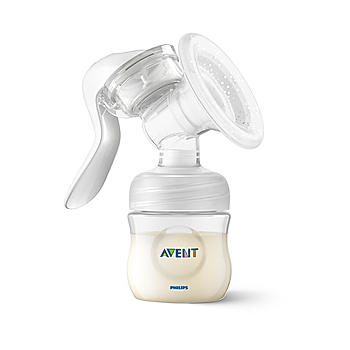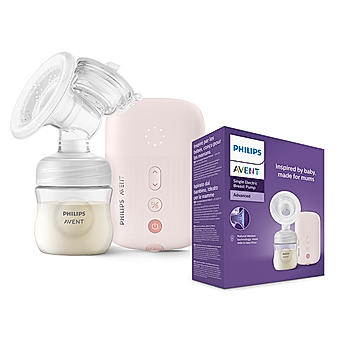The best way to increase breast milk is to continue nursing the baby. The emptying of milk signals the body to produce more of it. However, breast milk supply may depend a lot on your diet and nutrition. Read this article to learn more.

Top Foods To Increase Breast Milk Supply
After giving birth, a lot of mothers worry about their breast milk supply. It’s a common insecurity for mothers to think that their baby isn’t getting the necessary amount of milk that is required for normal growth. The best way to increase breast milk is to continue nursing the baby. The emptying of milk signals the body to produce more of it. If you are waiting for longer in between feedings in the hope of increasing milk supply, you’re doing it wrong. It is a counter-productive measure and will actually lead to your body producing less milk. Simply put, the emptier your breasts are, the faster they will refill. However, breast milk supply may depend a lot on your diet and nutrition. You can consider adding more galactagogues to your daily intake of food. A galactagogue is any herb, food, or supplement that aids in the supply and ejection of breast milk. Here are a few:
Oatmeal
A perfect start to this list and a perfect start to your day! We all know that oatmeal helps with controlling cholesterol and lowering the risk of diabetes. It is also an excellent source of fiber. But did you know it can also help in increasing breast milk? In addition to all of these health benefits, oats also increase the levels of prolactin in the body. This leads to a direct increase in the supply of breast milk.
Ginger
Traditionally, ginger root has been used to promote lactation in many cultures. While they are an excellent cure for morning sickness and digestive issues, they can also help in aiding increasing breast milk supply. Grate some ginger over your tea, salad, or in your baking to derive all the benefits of this super root.
Nuts
Being a new mom might be driving you nuts! But you can rely on nuts to increase breast milk supply with just a handful a day. They’re excellent sources of fats and antioxidants, especially cashews, almonds, and macadamia nuts. Just make sure you get raw nuts as most commercially available nuts are oiled and salted. Always opt for sodium-free nuts whenever possible.
Carrots
Yes, mashed carrots make an excellent baby food. But they also make a great galactagogue! Apart from healthy carbs and potassium, carrots are full of beta-carotene and Vitamin A, which are beneficial to lactation. Snacking on carrots will also help you get rid of some of that baby weight. Add carrots in any form to your daily diet and watch your milk supply go up!
Fennel
Commonly known as saunf in India, Fennel is an herb that is full of healthy phytoestrogens (plant-based compounds that mimic estrogen in the body), whether you consume it raw or as a seed. Fennel is also known for aiding digestion and reducing instances of gas and colic in the baby.
Sesame and flaxseed
You might appreciate them as a topping on burger buns, but that won’t be enough! They are a substantial non-dairy source of calcium, protein, and healthy fatty acids; all vital for your baby’s growth. They also have a lot of phytoestrogen and other nutrients that promote lactation. Try adding a handful into your daily cooking whether it is rice, chutney, or even ladoos!
Fenugreek
It’s a common practice to ask your local grocer to add some methi to your purchase. But next time, you can throw in some fenugreek seeds as well. Fenugreek (both seeds and leaves) have been used for generation across the world to increase breast milk production. While the leaves are rich in nutrients like beta-carotene, Vitamin B, iron and calcium, the seeds are high in omega-3 fatty acids (which are necessary for your baby’s brain development). Fenugreek seeds can be added to tea while brewing or mixed in when preparing roti or puri.
Garlic
Adding garlic to your food can add another layer of deliciousness, as well as bolster your immune system with its curative properties. While it certainly can help in increasing milk supply, just be wary of consuming too much as it could affect the taste of breast milk. Most babies do not like the taste of garlic.
Leafy green vegetables
Vegetables like mustard greens, spinach, and kale are high in iron, calcium, and folate. This makes it a great choice for both moms and babies as the plenty of vitamins and nutrients help in increasing breast milk supply while also fulfilling the baby’s growth requirements. Try having at least one portion of leafy green vegetables every day.
Basil
You might know it as tulsi, but basil has been used for generations to promote lactation in new mothers. In addition to its milk boosting qualities, it also aids in regulating bowel movements and promoting a good appetite. Try adding some basil to your daily cup of tea so that even you can take advantage of its calming effects.
Frequently Asked Questions About Foods Related To Breast Milk
What else can I do to increase breast milk supply?
Increase skin-to-skin contact – This releases prolactin and stimulates oxytocin, the two hormones that are responsible for milk production.
Breast compression – Gently squeezing the breast as you nurse so that your milk glands are encouraged to let down more milk. Similar to milking a cow.
Comfortable Positioning while nursing – Maybe your back isn’t supported, or your setting isn’t ideal. Make sure you are in a comfortable setting, both mentally and physically.
Feed your child frequently – Regular pumping or nursing sessions encourage the breasts to produce more milk.
What are some bad habits that I should avoid when breast feeding?
- Wearing bras, tops, or slings that are too tight for your breasts
- Using certain allergy medications
- Drinking too much alcohol or smoking cigarettes
- Not giving your baby enough time to nurse
- Taking herbs without consulting a doctor first
Well, what about alcohol?
Not drinking alcohol is the safest option. But if you do choose to partake in it, alcohol is something you have to be careful with. You can enjoy a drink once in a while if you are following certain conditions. The best time to enjoy alcohol is during your last feed. You may choose to sip a glass of wine while simultaneously feeding your child before they go off to sleep. This gives your body more than enough time to metabolize the alcohol. Just make sure you wait at least two hours before feeding your baby so that it doesn’t show up in breast milk.
Are there any foods that I should avoid?
Yes, there are plenty. Avoid foods high in mercury levels. This includes certain types of fish like king mackerel, swordfish, and tuna. High mercury levels are detrimental to the baby’s growth. Caffeine should be moderated. No more than 2 cups of coffee or 4 cups of tea per day. Spicy foods should also be steered clear from as baby’s don’t respond well to spices. For them, it tastes bad and can upset their weak digestive system.




